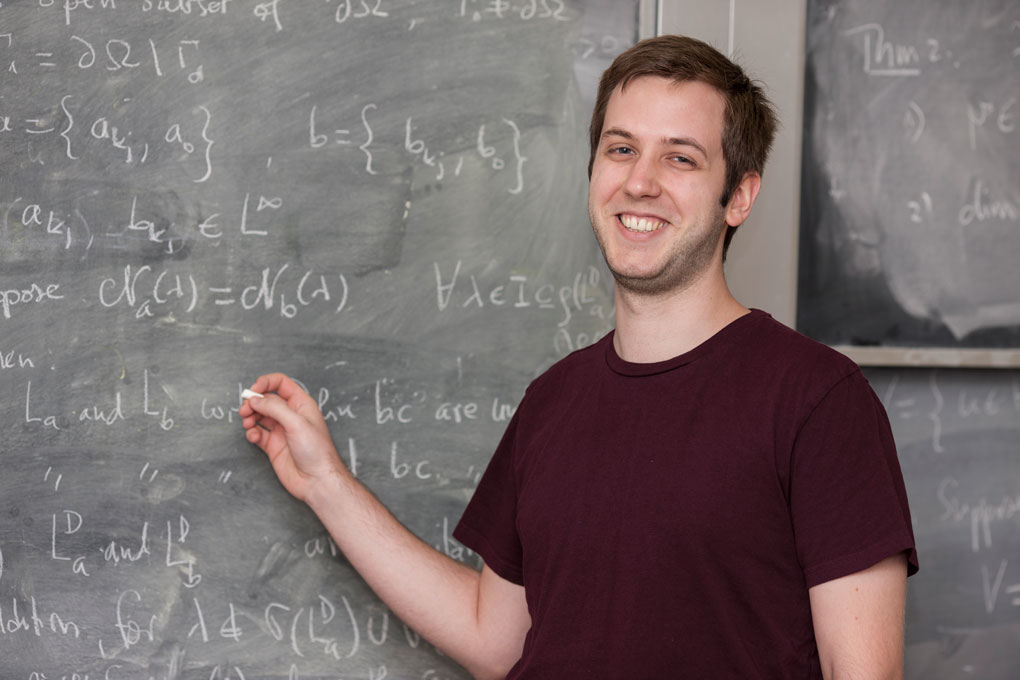Strategic decision making, it’s a game
It’s unbelievable: to have that degree of interaction with top professors, even if it’s just for lunch or for a short project, is really amazing.
Recent graduate Alex Mascolo has followed his academic passions to uncover links between economics, philosophy and artificial intelligence.
Alex, who graduated today with a Bachelor of Philosophy (Honours), has studied everything from mathematics and statistics, to linguistics and philosophy.
“I ended up doing honours in computer science, studying game theory—it’s an amazing field,” he said.
Game theory is the mathematical study of strategic decision-making, and it can help explain the interactions between different agents especially where cooperation is needed.
The theory can be applied to a range of real life situations, from finding a solution to the Greek financial crisis, to the evolution of cooperative behavior and building artificial intelligence.
“A lot of game theory is about how to make the right decisions, so it can be very useful when programming computers to solve complex problems or behave intelligently,” Alex said.
To complete his honours thesis Alex had to delve into the theory of game theory which involved examining papers from computer science, psychology, mathematics, economics and management.
“I’ve had a wonderful year of pure intellectual academic stimulation—I think it’s beautiful and fascinating, and challenging,” he said.
But despite the fact that this theoretical study doesn’t have a direct link to industry careers, Alex doesn’t have any regrets.
“Even if I end up pursuing a career outside of academia, just having had a whole year to dedicate to a substantial project, and really delve into it and manage it yourself, gives you transferable skills in anything you do,” he said.
Thankfully, the Bachelor of Philosophy (Honours) provided Alex with the flexibility and opportunities needed to explore his unique interests.
“It was amazing how many disciplines it spanned, and you wouldn’t be able to do this in a more traditional degree, you wouldn’t have the opportunity to build up the expertise in so many fields,” he said.
“You do have access to really top academics who are very experienced people, both in life experience and academia, and it’s worth following their advice.”
“It’s unbelievable: to have that degree of interaction with top professors, even if it’s just for lunch or for a short project, is really amazing.”
Alex, who completed his secondary education at Rosny College in Hobart before coming to ANU, is optimistic about the future and is keeping his options open. He is planning on doing postgraduate study in applied mathematics at ANU, before deciding if he wants to follow his passion into a PhD.

